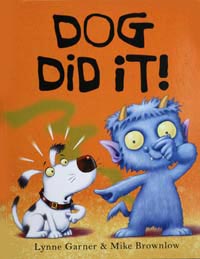I teach a number of writing courses that encourage students to earn money from their writing. As part of their marketing campaign I always suggest that writing a blog can be a good option. The reasons I give are the very reasons I blog. They include:
- It provides you with the opportunity to exercise your writing ‘muscle’
- Blogging doesn’t cost you anything apart from time – so can be a cost effective marketing tool
- It allows you to create your USP by proving you know your subject – great if you want to impress an editor
- It enables you to reach a worldwide audience and market yourself and your work, even when you're asleep
Now when blogging there are things you should do and things you shouldn’t. What follows are a few tips that will hopefully help you create a blog people will want to visit plus a few tips on blogging etiquette.
What you should do when blogging:
One:
Don’t just use it to sell, sell, sell. Write something of interest; create a blog that is useful and provides information, just as I’m hopefully doing with these tips. However remember a blog can be used as a marketing tool and include a link here and there. Be honest you don’t get anything for nothing. As a reader I’m more than happy to gain from someone’s knowledge with the only cost to me being the odd link here and there (which I don't have to follow if I don't want to).
Two:
Include images of anything related to the blog content, you or your work. It makes the page look more enticing and allows you to ‘hide’ a little advert - hence the picture of my latest book – see point one.
Three:
Don’t moan about your in-grown toenail, how bad your day has been or what you plan to have to lunch, people don’t care. I refer you back to point one, so write something of interest or of use.
Four:
Ensure you proofread and edit, make the work the best you make it. This will prove you care about your work and hopefully encourage an editor to contact you and offer that book contract you’re looking for. As someone who is an Indie publisher it also proves to possible readers of my work that I can string a sentence together.
What you shouldn't do when blogging:
One:
Use it as a tool to send spam.
Two:
Steal someone’s copyright (words and or images). You’d be annoyed if it were to happen to you.
Three:
Don’t be rude, cruel, incite hatred, say anything that can be considered libellous, encourage someone to break the law or say something you know is untrue. It damages your reputation, will lose you readers and may lose you work. This also goes if you're leaving comments on a blog post. What you write reflects on you and once your reputation is damaged it can take a long time (if ever) to repair that damage.
Four:
Don’t share information that is personal to you or anyone else.
Five:
Don't claim to have done something you haven't or be something you’re not. There will be at least one person who will know you're stretching the truth and will let the world know. As with point three it will simply damage your reputation and people remember.
Although writing a blog may not directly earn you money you may find you get commissions based upon your on-line presence. I know a couple of my writing friends have and I gained a commission from a US magazine from one of my crafting themed posts.
I hope you’ve learned a little from this post and I’d love to know why you blog.
Lynne
As I’ve mentioned I teach a few writing courses I thought just in case anyone was interested I'd included links to three of my courses that start on the 7th March 2015:
See what I did there?




